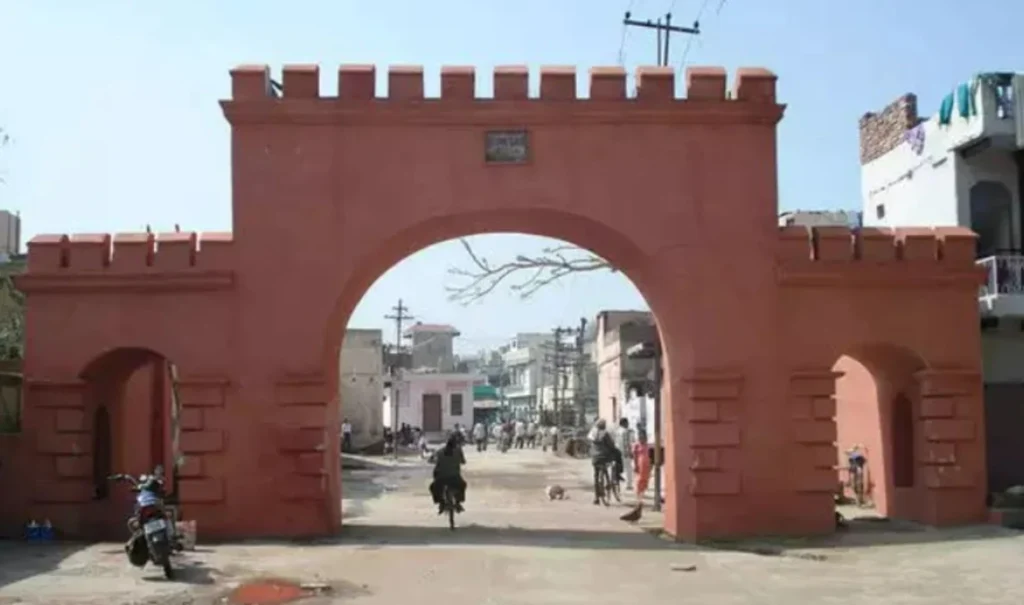“Discover Rewari District, a place rich in heritage and rapid growth. Explore its historical landmarks, vibrant culture, and bright future prospects.”

Explore Rewari: Where Tradition Meets Modern Development
Rewari District, located in the northern Indian state of Haryana, holds a rich historical and cultural significance. With a land area of approximately 1,563 square kilometers and a population characterized by its diversity, the district offers a blend of urban development and rural traditions.
The district’s history dates back to the Indus Valley Civilization, evident from the archaeological findings in the region. It was also a prominent center during the Vedic period, making it a place of historical importance. The name “Rewari” is believed to be derived from “Rewar,” an ancient term referring to a temple dedicated to Lord Rewari, a deity revered by the locals.
One of Rewari District’s distinctive features is its strategic location. It shares its borders with Delhi, making it an integral part of the National Capital Region (NCR). This geographical advantage has led to increased economic activities, urbanization, and connectivity. The district is well-connected through road and rail networks, which play a crucial role in promoting trade and tourism.
Rewari boasts a diverse and vibrant culture that reflects the fusion of traditional and modern values. The people celebrate various festivals with great enthusiasm, including Diwali, Holi, and Eid. The region’s folk music and dance forms, such as Phag Dance and Ghoomar, provide insights into the local heritage and way of life. The crafts industry here is also noteworthy, with artisans producing intricate handicrafts and textiles that showcase their skills.
Agriculture forms the backbone of Rewari’s economy, with crops like wheat, mustard, and bajra being the primary produce. However, the district has also seen industrial growth, particularly in sectors like automobile manufacturing and metalwork. This transition towards industrialization has contributed to job creation and improved living standards for many residents.
Educational institutions in Rewari District play a vital role in shaping the future of its youth. The district has made strides in improving literacy rates, with both government and private schools providing quality education. Moreover, the establishment of vocational training centers has equipped students with practical skills, enhancing their employability.
While Rewari embraces progress, it also faces certain challenges. As urbanization accelerates, there is a need to maintain a balance between development and environmental sustainability. Additionally, ensuring equitable growth across rural and urban areas remains a priority for local authorities.
In conclusion, Rewari District stands as a microcosm of India’s diverse heritage and development. Its historical roots, cultural tapestry, and economic evolution make it a unique and compelling region within Haryana. As it continues to tread the path of progress, the district must find ways to preserve its legacy while embracing the opportunities that modernization brings.
Famous Places in Rewari District
Rewari District is dotted with several famous places that offer a glimpse into its rich history and cultural heritage. Here are some noteworthy destinations to explore:
Bawal Fort: This historical fort is a testament to the district’s past. Built during the Mughal era, Bawal Fort showcases exquisite architecture and provides panoramic views of the surrounding landscape.
Ahir College: Founded in 1945, Ahir College is one of the oldest educational institutions in the region. The college’s heritage buildings and lush campus make it a prominent landmark in Rewari.
Rewari Steam Locomotive Shed: A treat for train enthusiasts, this steam locomotive shed is a part of Indian Railways’ history. It houses vintage steam engines and offers a nostalgic journey back in time.
Qutub Khan’s Tomb: An architectural gem, this tomb dates back to the Tughlaq dynasty and features intricate designs and inscriptions. It stands as a silent witness to centuries of history.
Kali Mata Mandir: This revered temple dedicated to Goddess Kali attracts devotees from all around. Its serene ambiance and religious significance make it a must-visit spiritual destination.
Gurudwara Bawani Khera: A Sikh place of worship, this Gurudwara holds historical importance as Guru Nanak Dev Ji visited the area during his travels. The serene surroundings offer a peaceful retreat.
Heritage Transport Museum: This unique museum offers insights into India’s transportation history. It houses an impressive collection of vintage automobiles, artifacts, and interactive exhibits.
Nahar Wildlife Sanctuary: Nature enthusiasts can explore this sanctuary’s diverse flora and fauna. It’s a haven for bird watchers and provides opportunities for eco-tourism.
Rao Tula Ram Park: Dedicated to freedom fighter Rao Tula Ram, this park is a tranquil space for relaxation and recreation. The statue of Rao Tula Ram pays homage to his contributions.
Bhagwat Shiva Mandir: This ancient temple dedicated to Lord Shiva is revered by locals and visitors alike. Its architectural beauty and spiritual aura make it a place of devotion.
These are just a few of the famous places that Rewari District has to offer. Each destination reflects a different facet of the district’s history, culture, and spirituality, making it a rewarding experience for tourists and history enthusiasts alike.
Read More :-
